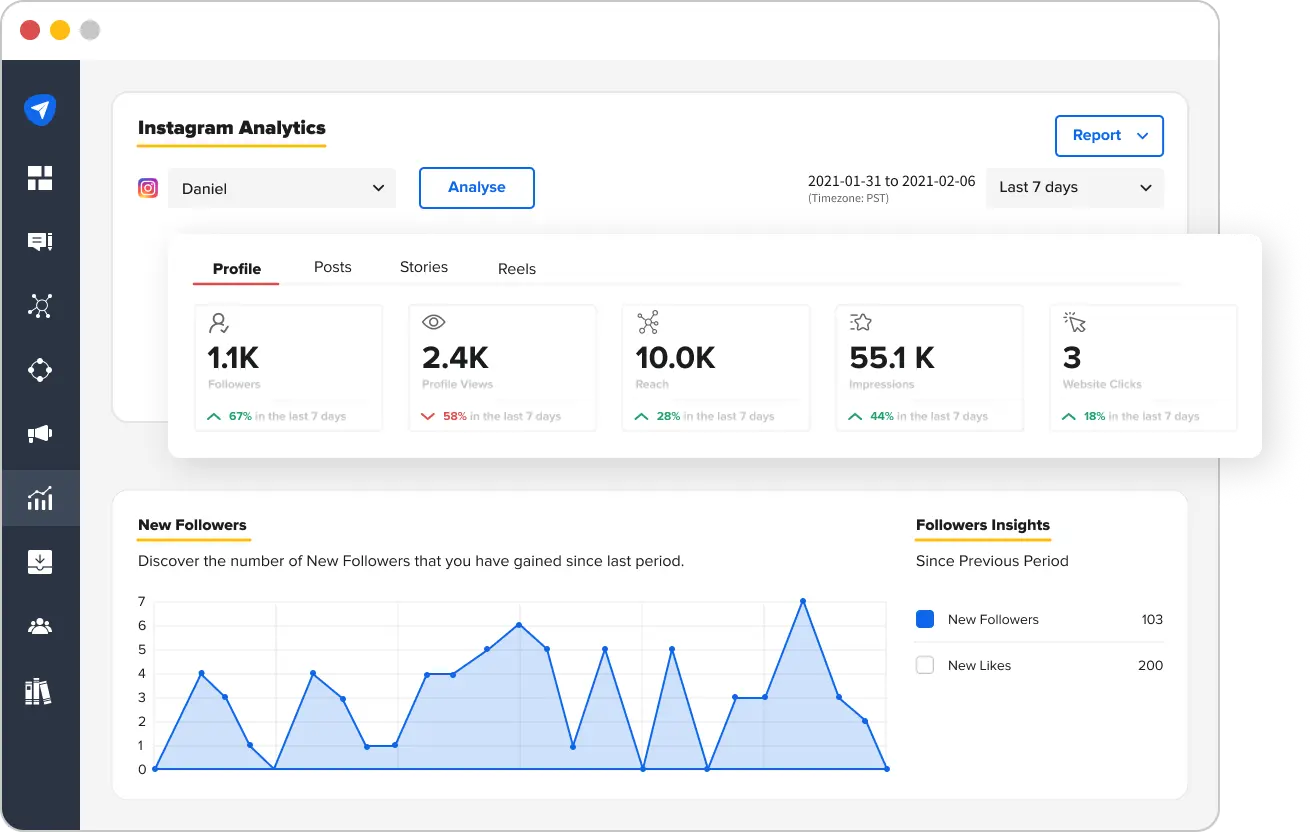More About Metrics
Monitoring the success of any campaign is an important process to understand the success of a brand or other user’s marketing efforts. Here is where metrics come in.
Marketing metrics are essential for measuring the success of marketing efforts and for making data-driven decisions about future marketing activities. By tracking and analyzing marketing metrics, businesses can identify what is working and what is not and adjust their strategies accordingly.
Before the advent of the Internet and social media in the 1900s, marketers used to track only a tiny aspect of metrics for any campaign. For example, if a soda company ran its advertising campaign in the newspapers and through television commercials, the brand would typically only track the profit generated through the advertising against the investment made.
But with the advancement of technology and digital content, you can track almost every metric with regard to your advertising campaigns run on social media or other online channels.
So, what are metrics on social media? The information you collect and utilize to gauge the success of your social media efforts is known as social media metrics. These metrics enable you to assess the return on investment (ROI) in social media marketing campaigns.
When you start to use social media for advertising your products and services, you need to monitor every little detail that shows how and why your audience interacts with your posts and videos. The metric numbers can assist you in learning how your consumer engages with your social media pages and if you should tweak your approach to reach your target audience effectively.
You need to monitor the likes, comments, retweets, shares, messages, and mentions to understand what your audience likes and dislikes. You can monitor basic metric categories to build your target audience, post content, and plan your upcoming campaigns accordingly.
Certain social media metrics that can be used to track the effectiveness of a campaign are as follows:
- Reach
- Impressions
- Cost-per-click (CPC)
- Engagement rate
- Virality rate
- Conversion rate
- Audience growth rate
- Amplification rate
- Likes/comments
- Lead generation
- Overall sales/revenue
- Volume
- Sentiment
- Share of voice
- Response rate
- Click-through rate (CTR)
You must understand what metrics you are monitoring and the purpose for tracking them.
There are several ways to study these metric categories. Some social media platforms integrate an interactive and user-friendly interface for metrics with graphs, statistics reports, filters, etc. You can also analyze your marketing metrics on a single platform or social media marketing tool.
Here is an example of a dashboard representing a metric study for Instagram. The analytics dashboard displays metrics such as follower count, impressions, reach, profile views, website clicks, etc.



